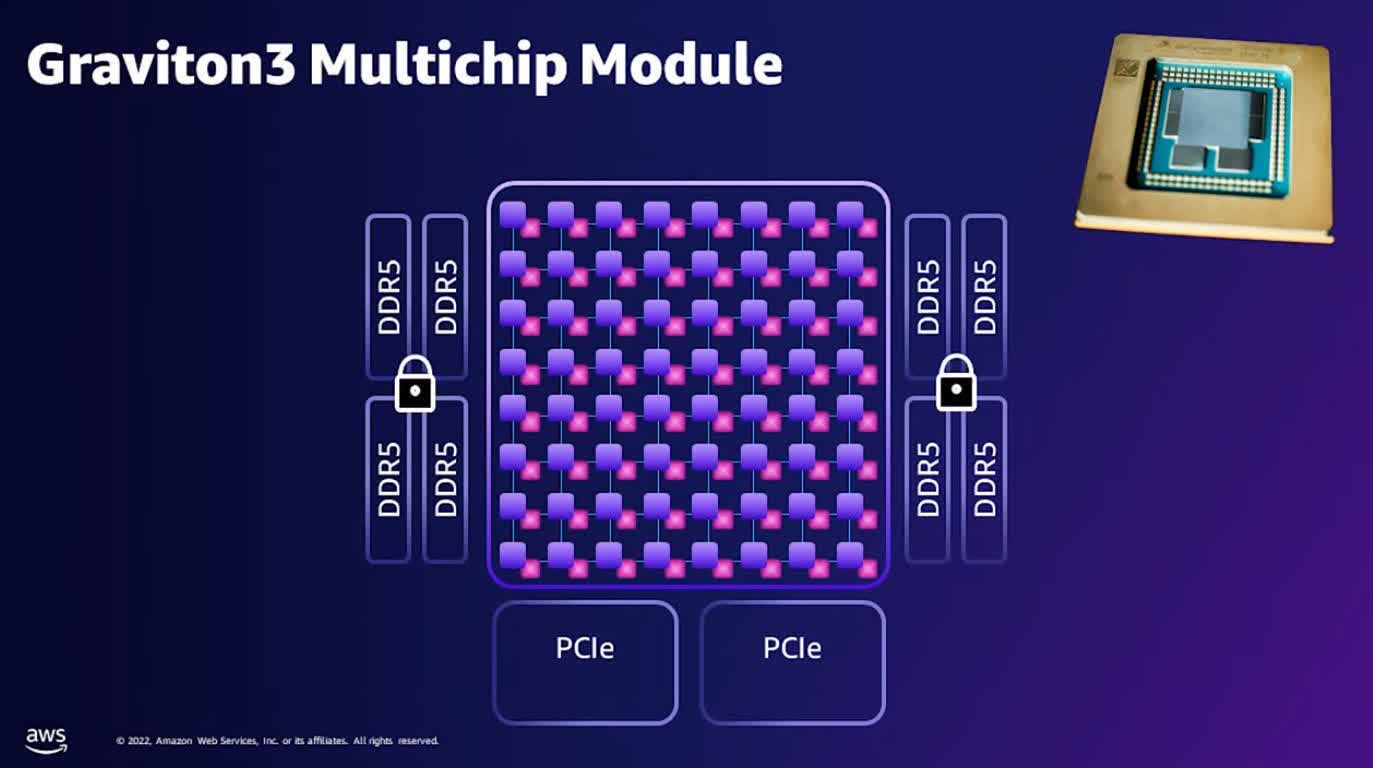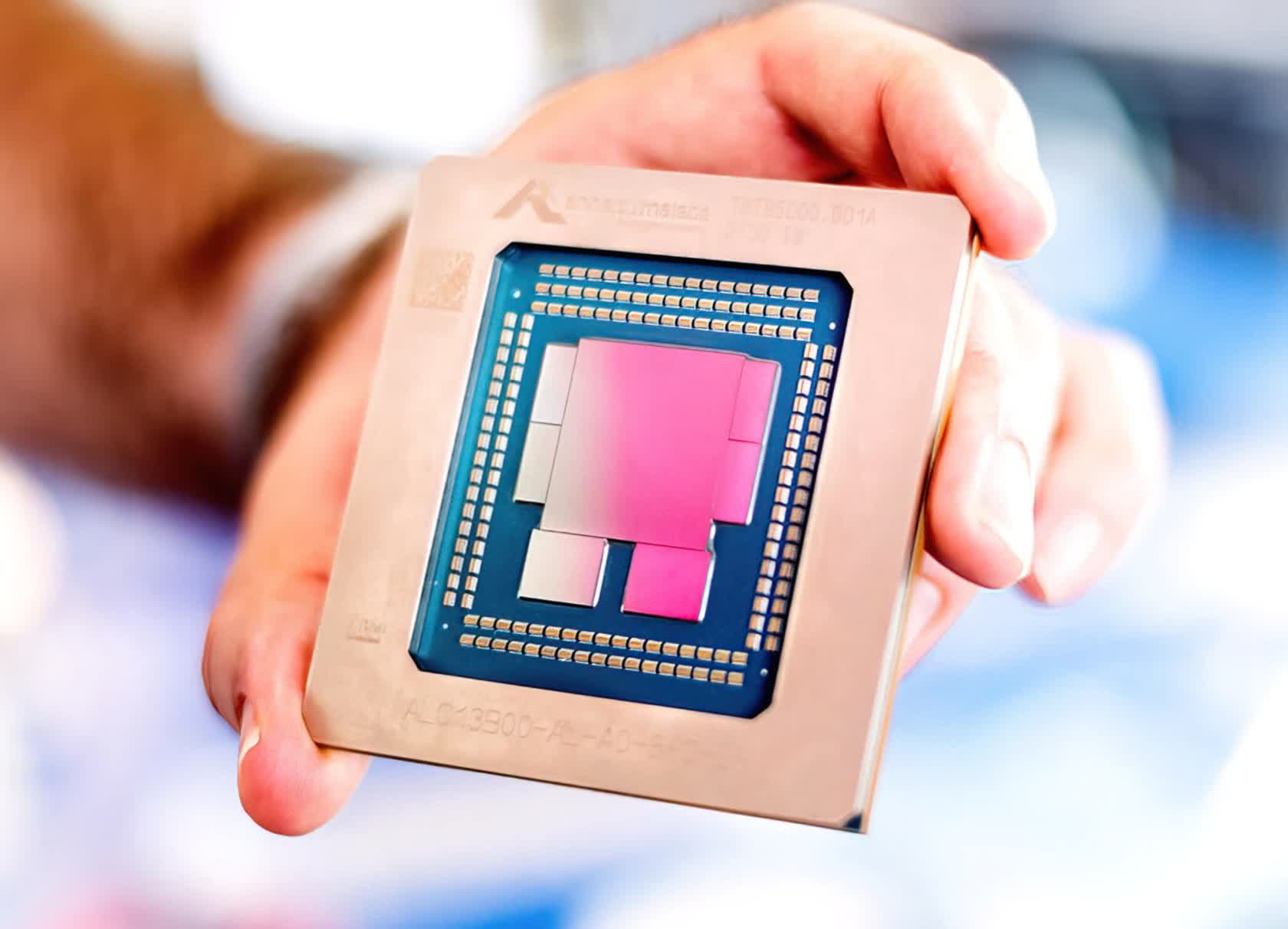In a nutshell: After being announced six months ago, Amazon has finally dropped their third-gen Graviton CPUs into their rentable AWS instances. Amazon's also revealed their one very unique feature: exactly three of them slot into one motherboard, no more and no less.
Amazon's Graviton series is the line of Arm processors that it designs and produces itself, for itself. It makes them available virtually through AWS (Amazon Web Services) to the public and companies of any scale; Amazon has proudly announced that Epic Games, Formula 1, and Twitter have been testing and liking Graviton3 instances ahead of last week's release.
Amazon hasn't gone into much detail with the specs, only saying that the Graviton3 has 64 cores in its compute chiplet. With all its chiplets combined, it has 55 billion transistors, almost twice as many as the Graviton2 and more than even the 64 core AMD Epyc Rome CPU.
You can spot the seven chiplets in the diagram below. In the middle is the monolithic compute die with all the cores. South of it is a pair of PCIe 5.0 controllers and flanking the sides are four DDR5 controllers that, based on the diagram, manage two lanes each.

Amazon says that the Graviton3 is 25% faster per-core than its predecessor from 2020. In all-core scenarios, its floating-point and cryptography throughput are doubled, and its machine learning performance is tripled. Not bad, although the Graviton2 had just a quarter of the cores: 16.
AWS C7g instances using the Graviton3 are now available with up to 64 vCPUs, or one whole processor. In its maximum configuration, the system has 128 GB of DDR5 and 30 Gbps of network bandwidth. Instances are available all the way down to 1 vCPU (core), as usual.
ServeTheHome notes that Amazon is treating each processor as a separate node, which might be why they're able to put three on a motherboard. And the how: instead of using a parallelized approach that would lend itself to two or four sockets, each motherboard is wired into a Nitro card that manages all the networking, security, and storage.
It's a shame that Amazon won't sell the Graviton3 and its chipset because it would be awesome to fool around with. AWS can't stop going from success to success.
